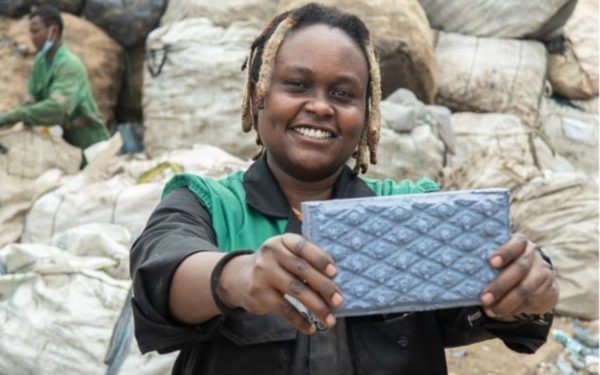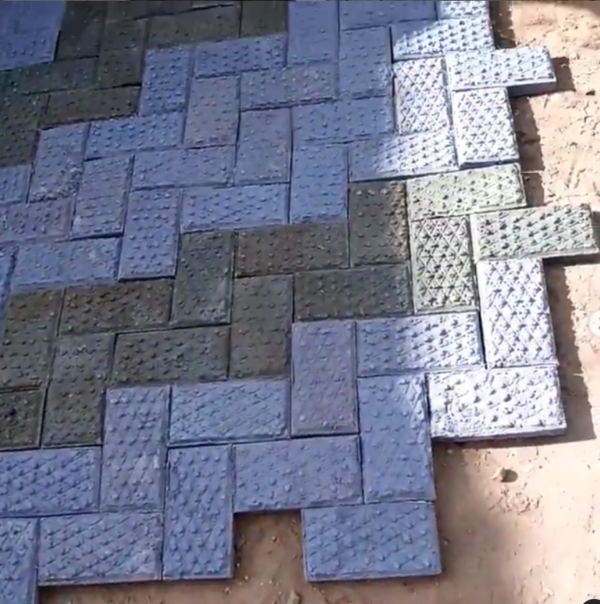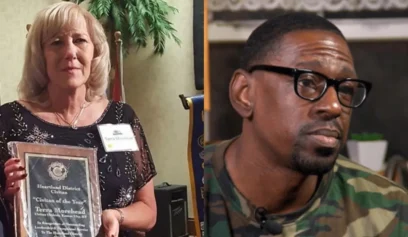A Kenyan woman and owner of a Nairobi-based factory has invented a brick stronger than concrete from recycled plastics.
Nzambi Matee, a 29-year-old materials engineer, is the founder of Gjenge Makers, a manufacturing company based in the Kenyan Capital that produces alternative, affordable building materials from recycled plastics.
“Our product is almost five to seven times stronger than concrete,” said Matee, who selected as a 2020 regional winner in the United Nations’ Young Champions of the Earth Program. She designed the machines that produce the bricks.
Matee said her company converts waste that cannot usually be processed or recycled into alternative building products. She hopes to expand across the African continent.
“Plastic is a material that is misused and misunderstood. The potential is enormous, but its afterlife can be disastrous,” Matee said.

The company produces about 1,500 bricks each day from a variety of plastics. Since the company was founded in 2017, the factory has recycled 20 tons of plastic waste.
Gjenge Makers receives waste from packaging factories for free, but pays for the waste from other recyclers.
“We have partnered with different manufacturers of plastics bottle tops and seals in the beverage and pharmaceutical industries here in Kenya, from whom we collect offcuts and scraps,” Matee’s profile on the U.N. website says.
Both high and low density polyethylene, as well as polypropylene, are mixed with sand, heated, then compressed into bricks before being sold.
The company’s common gray bricks cost 850 Kenyan shillings or about $7.70 per square meter.

The company also compensates community members for their work in supplying the factory with waste.
“We have financially empowered over 112 individuals the majority of whom are women and youth groups who are our partners in supplying the waste plastic and the pre-processing stage of our production process,” her profile continues.
Matee describes herself as a “self-taught hardware designer and mechanical engineer” with a background in physics.
While working as a data analyst and oil-industry engineer before launching the company, Matee encountered plastic waste in Nairobi’s streets. She quit her job and set up a small lab in her mother’s backyard where she tested mixtures of plastics and sand.
After receiving a scholarship to study in the materials lab at University of Colorado Boulder, Matee developed a prototype of the machine that now processes the plastics in the factory.
She said she started Gjenge Makers with the mission of tackling Kenya’s waste pollution problem.
“I was tired of being on the sidelines,” Matee explained.


